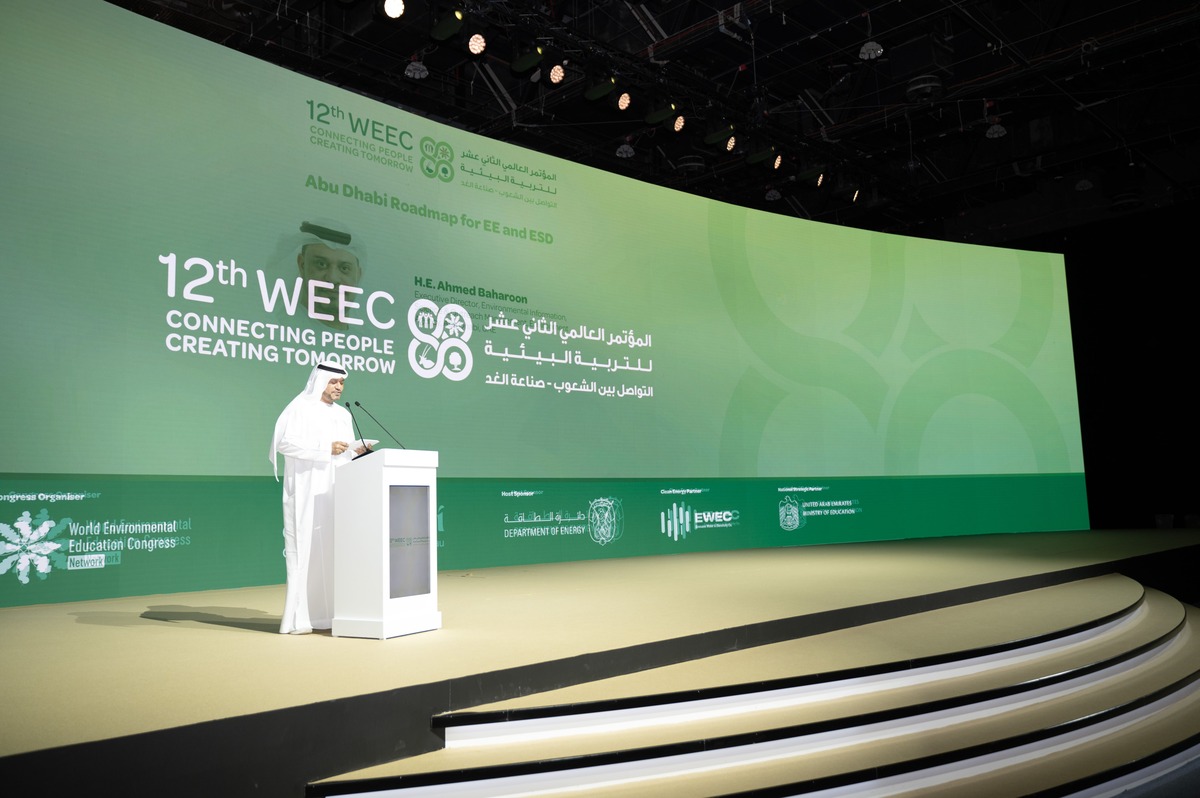The 12th World Environmental Education Congress (WEEC2024) at the Abu Dhabi National Exhibition Centre (ADNEC) launched the Abu Dhabi Roadmap, a comprehensive plan aimed at strengthening Environmental Education (EE) and Education for Sustainable Development (ESD) on a global scale. The roadmap, presented on the fourth day of the congress, calls for action to address the Triple Planetary Crisis and revitalize efforts in EE and ESD.
Shaikha Al Dhaheri, secretary-general at Environment Agency – Abu Dhabi (EAD), described the Abu Dhabi Roadmap as a significant milestone towards a sustainable and resilient future. She emphasized the UAE’s commitment to enhancing EE and expressed gratitude for the knowledge and inspiration gained during WEEC2024. Al Dhaheri stated that the Roadmap would propel their ongoing work towards a greener future.
According to the Emirates News Agency (WAM), the Roadmap was developed through collaboration with stakeholders from 83 countries, including UNESCO, IUCN, UNEP, UAE Ministry of Education, UAE Ministry of Climate Change and the Environment (MOCCAE), Department of Education and Knowledge in Abu Dhabi, and Abu Dhabi Early Childhood Authority (ECA). The input of global environmental education experts was also instrumental in shaping the Roadmap, which was introduced by Ahmed Baharoon, executive director of Environmental Information, Science, and Outreach Management at Environment Agency Abu Dhabi.
Baharoon highlighted that the discussions at the congress had helped inform the development of the Roadmap. However, its origins can be traced back to COP28, where urgent calls for action in Environmental Education and Education for Sustainable Development were made to address the Triple Planetary Crisis, which threatens humanity.
Key recommendations
The Abu Dhabi Roadmap puts forth key recommendations, including the urgent scaling up of EE and ESD efforts at both national and global levels. It recognizes the importance of events like WEEC in fostering integration and amplifying the impact of shared goals. The plan also highlights the need to leverage AI and smart technologies to achieve environmental goals and underscores the significance of ethics and values in EE and ESD to foster emotional connections between society and nature. Acknowledging the complexities of the present day, the Roadmap recommends evaluative learning to improve the effectiveness of EE and ESD interventions. It also advocates for the combination of green skills and green jobs to drive sustainable development effectively.
For more news on sustainability, click here.








